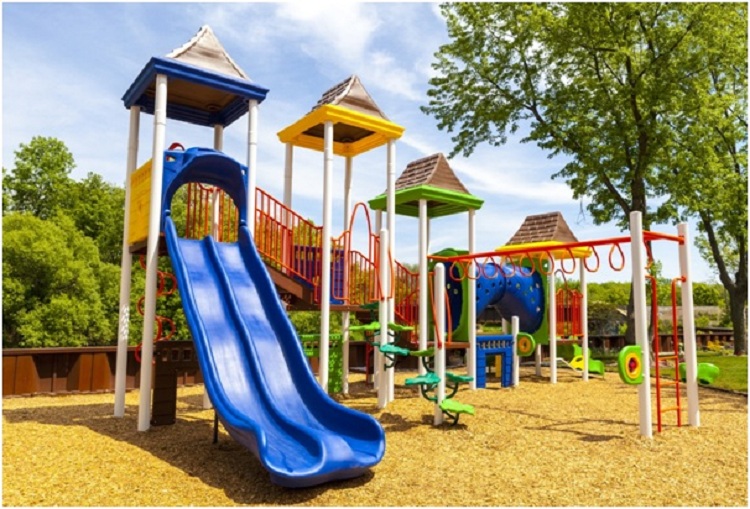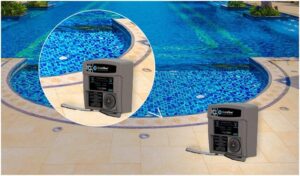
Is there anything more pleasant than hearing children at play? The joy on their faces and in their voices shows how much kids love to play and make friends with other kids in their neighbourhood. Playgrounds at school and in the neighbourhood are often where long-lasting friendships start. Play and playground is good for more than just making friends. Read on to find out more about why it’s good to play.
Playground: The Emotional, Social, Mental and Physical Benefits
When kids are able to play, they get a lot of high-level benefits. These includea stronger immune system, a higher sense of self-worth, and better teamwork skills. In the next sections, we’ll look at all of the ways that play is good for kids. We’ll talk on different aspects such as emotional, social, mental, and physical level.
Due to our busy and never-ending lives as families in the twenty-first century, there are many things that might pull your kids away from play. The point of TV, computer games, and cell phones is to get the attention of a large number of children. Advertisers and stores are going after kids who are youngerto get them or their parents to buy new tech gadgets.
In trying to get kids to watch more TV, we’re ignoring one of the most important parts of their development: playtime.
Why is it so important to play?
The UN’s High Commission on Human Rights says that every child has the right to play.This is because it is so important for child development everywhere! Play is one of the best ways for kids to learn the emotional, social, and creative thinking skills. Play helps kids get to know their neighbours and other people in their community in a fun way.
It gives them a chance to see how far they can go and grow as they try out new ideas and behaviours. So what is play, and why is it so important? Experts say that play is “any spontaneous or organised activity that provides enjoyment, entertainment, diversion, or amusement.”
Playing in any way is good, but free, unstructured play may be the most important. It helps children be independent and learn how to make decisions on their own to get what they want.
Social Benefits of Play
Children look forward to playtime because it gives them a chance to hang out with their friends. When kids play in playgrounds and parks, they can meet new friends and learn how to deal with problems. When kids play with other kids, they learn the following!
- How to navigate a complex social network:When you go to a playground, you usually see a group of children having fun. However, there is much activity beneath the surface. When kids play together, they learn important things. These include how to get along with others, social norms, and even how to be independent.
- How to listen:When kids make up a game and its rules, they need to listen carefully to what other kids say. They learn how to ask for more information. They decide how to negotiate and reach agreements. Listening is one of the most important skills for adults.And, the playground can be a great place to improve this skill.
- How to collaborate:In many children’s games, there is no winner or loser. Instead, everyone works together to reach the same goal. To reach this goal, children learn to work together and help each other. They have a group of friends that they work with.
How to Keep an Outdoor Playground Clean?
1. Choose the Right Ground Cover!
Don’t be tempted to save money by choosing cheap materials for the playground surface. Dirt, gravel, and other natural coverings can sometimes hide things that shouldn’t be there in playgrounds. In fact, it’s easy to hide dangerous things like broken glass in gravel until a child gets hurt. Parents and other adults should be able to see the whole field from the surface you choose.
Synthetic grass, rubber, and tiles that soak up water are great ways to make it easy to see dangerous waste on the ground. They are also easy to clean by giving them a quick rinse with a hose.
2. Make sure there are enough trash cans!
Most of the trash on the playground comes from visitors, and you can make this less of a problem by putting out enough trash cans to hold the expected amount of trash.
Think about putting recycling bins in the park to get people to be more careful about how they throw away their trash. The best place for trash cans is near places where people are likely to throw away more trash, like picnic areas.
3. Keep park equipment safe from the weather!
Rain and other kinds of weather can leave dust and pollen on playground equipment, which isn’t very nice. Think about putting up shade structures in places where people tend to sit. For example, a covered gazebo is a beautiful place to set up picnic tables and will also help keep the area clean.
4. Make your park a place where people are proud to live!
When people at the playground feel like they own the space, it will take less time for your cleaning staff to pick up everyday trash and debris. With custom-made entry gates, you can welcome people to your park with the community’s emblem or symbol. This will give them a sense of duty to keep the area clean right from the start.
People are also more likely to clean up after themselves when they are in a beautiful place. Feel free to add personalised artwork like flowers and animals to add a stylish touch that people will want to keep up. A clean playground is a safe playground. Ask the people who clean and maintain your equipment to keep an eye out for signs of wear and tear.
By putting an emphasis on cleanliness and making it easy for everyone to help, you can make your playground equipment last longer and create a park that is the pride of your neighborhood.







